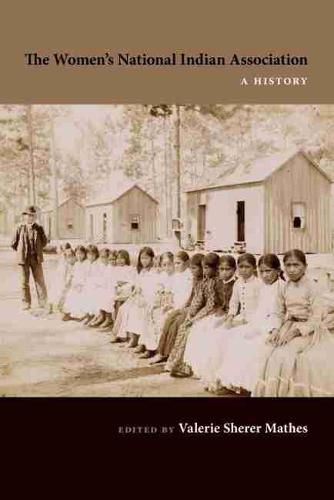Readings Newsletter
Become a Readings Member to make your shopping experience even easier.
Sign in or sign up for free!
You’re not far away from qualifying for FREE standard shipping within Australia
You’ve qualified for FREE standard shipping within Australia
The cart is loading…






The Women’s National Indian Association, formed in response to the chronic conflict and corruption that plagued relations between American Indians and the U.S. government, has been all but forgotten since it was disbanded in 1951. Mathes’s edited volume, the first book to address the history of the WNIA, comprises essays by eight authors on the work of this important reform group.
The WNIA was formed in 1879 in reaction to the prospect of opening Oklahoma Indian Territory to white settlement. A powerful network of upper- and middle-class friends and associates, the group soon expanded its mission beyond prayer and philanthropy as the women participated in political protest and organized successful petition drives that focused on securing civil and political rights for American Indians.
In addition to discussing the association’s history, the contributors to this book evaluate its legacies, both in the lives of Indian families and in the evolution of federal Indian policy. Their work reveals the complicated regional variations in reform and the complex nature of Anglo women’s relationships with indigenous people.
$9.00 standard shipping within Australia
FREE standard shipping within Australia for orders over $100.00
Express & International shipping calculated at checkout
The Women’s National Indian Association, formed in response to the chronic conflict and corruption that plagued relations between American Indians and the U.S. government, has been all but forgotten since it was disbanded in 1951. Mathes’s edited volume, the first book to address the history of the WNIA, comprises essays by eight authors on the work of this important reform group.
The WNIA was formed in 1879 in reaction to the prospect of opening Oklahoma Indian Territory to white settlement. A powerful network of upper- and middle-class friends and associates, the group soon expanded its mission beyond prayer and philanthropy as the women participated in political protest and organized successful petition drives that focused on securing civil and political rights for American Indians.
In addition to discussing the association’s history, the contributors to this book evaluate its legacies, both in the lives of Indian families and in the evolution of federal Indian policy. Their work reveals the complicated regional variations in reform and the complex nature of Anglo women’s relationships with indigenous people.